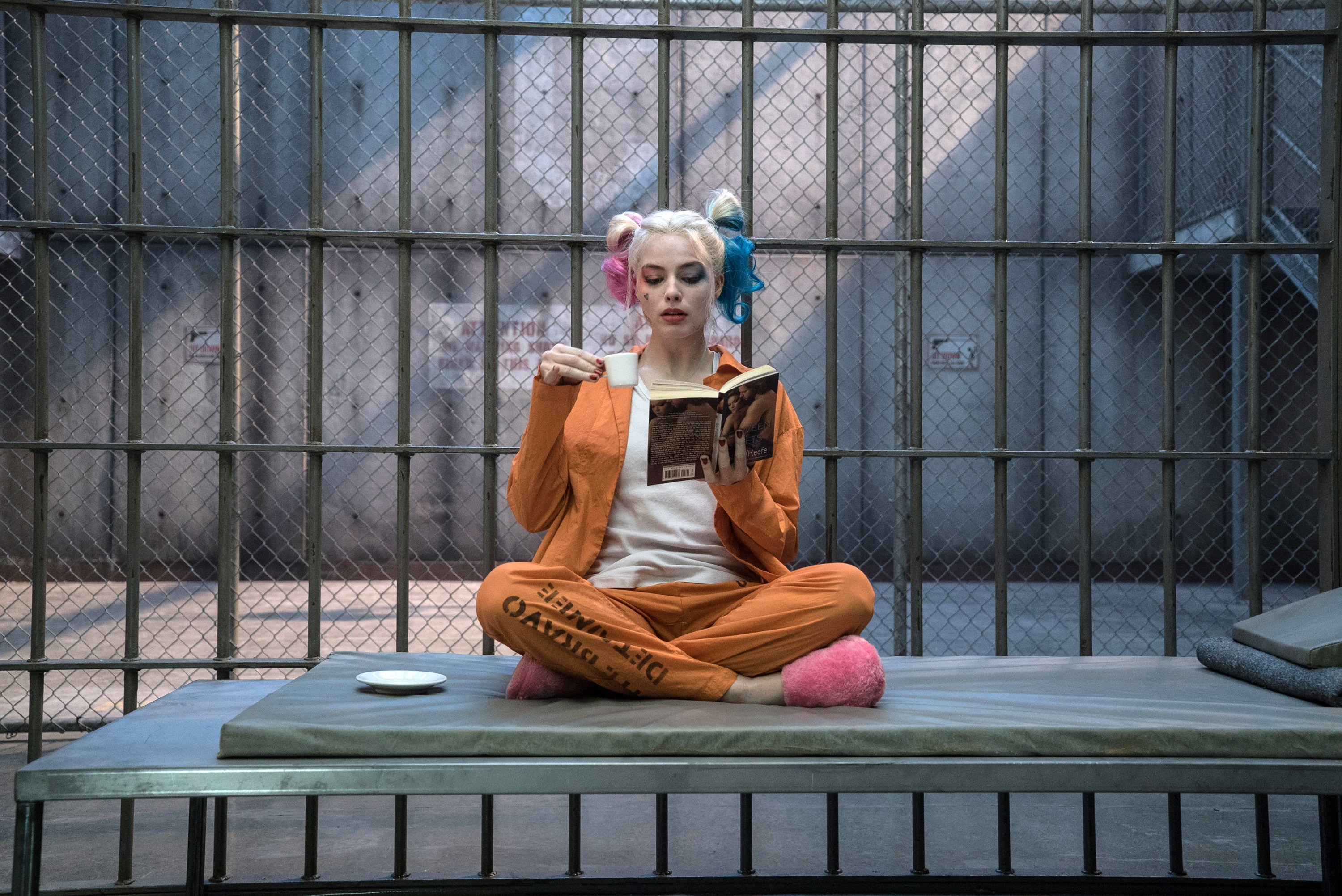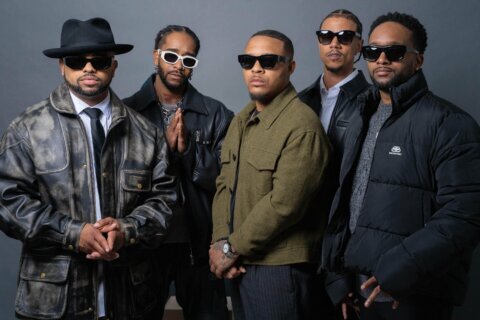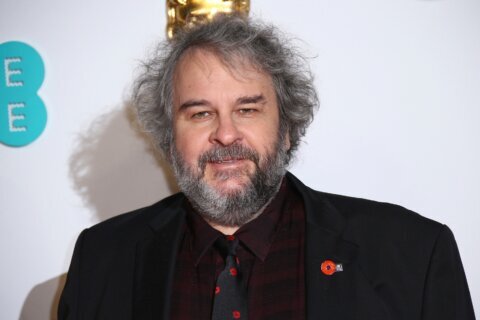WASHINGTON — Now batting, Harley Quinn! Her baseball bat packs plenty of home-run power, but the rest of her team is busy committing unforced errors. To paraphrase a famous poem: “Somewhere men are laughing, and somewhere children shout, but there’s no joy in Mudville; Mighty Harley has struck out.”
Uh oh. Time for this umpire to duck. Fans are throwing stuff on the field! How dare anyone criticize the anticipated superhero flick of the week! Message board trolls unite! Let the petitions begin!
Alas, the initial grades for “Suicide Squad” aren’t so different from the poor reviews for “Batman v Superman,” leaving DC Comics fans to file a Change.org petition (yes, really) to shut down Rotten Tomatoes, claiming, “We need this site to be shut down because its critics always give DC Extended Universe movies unjust bad reviews … that affect people’s opinions even if it’s really great movies.”
While I share the concern of a pack mentality on aggregate review sites — certainly, all critics should think for themselves rather than being swayed by a tide of opinion — I can’t stop laughing at the ludicrous conspiracy theorists who think journalists are somehow being paid to bash DC Comics.
In truth, most movie critics work as a labor of love, often free of charge, only to maybe one day be paid peanuts. What’s more, most genre best lists are dominated by DC Comics. Richard Donner’s “Superman” (1978). Tim Burton’s “Batman” (1989). Christopher Nolan’s “The Dark Knight” (2005-2012). Not all critics think the Marvel formula is spectacular; if anything, “Birdman” won the “elitist” Best Picture as a Michael Keaton (DC) statement against the glut of Marvel blockbusters.
Hate to break it to ya, but the problem isn’t the critics. The problem isn’t even DC vs. Marvel.
Here’s the answer. You ready? Make better movies.
Which brings us to “Suicide Squad,” an erratically stylish yet confused film that moves from fun to frustrating with each passing second as we gradually realize its creators can’t make up their minds. This confusion in tone and story is a shame because the film’s “Dirty Dozen” premise is promising.
Rather than “good guys” saving the world again, “Suicide Squad” allows the “bad guys” to take their turn. Picking up where “Batman v Superman” left off in a post-Superman world, the U.S. government fears World War III between man and mutantkind. So, a federal agent (Viola Davis) frees a motley crew of supervillain inmates, coercing them to fight for the nation’s interests. What could go wrong?
Leading the charge are two lovable faces from last year’s con comedy “Focus” (2015): Will Smith and Margot Robbie. Smith is on-point as Deadshot, an expert marksman who never misses — except when it comes to being the father his daughter truly needs. His sarcastic quips remind us why we love him, and why we so desperately missed him in “Independence Day: Resurgence” (2016).
But the real showstopper is Robbie, who’s becoming one of Hollywood’s hottest hands after her cocaine bombshell in “The Wolf of Wall Street” (2013) and her bubble-bath mortgage tutor in “The Big Short” (2015). In “Suicide Squad,” she plays The Joker’s candy-colored girlfriend, Harley Quinn, who wildly wields a baseball bat and uses her sexuality to trick drooling dudes to their death.
Robbie is now a superstar. Expect plenty of Halloween costumes of Harley Quinn this fall.
Unfortunately, the other members of the squad barely register.
Jay Hernandez plays the fiery El Diablo with angsty flashbacks on overkill. Joel Kinsman takes over Rick Flag after Tom Hardy dropped out. Adewale Akinnuoye-Agbaje plays Killer Croc with more pounds of makeup than he has things to do. Karen Fukuhara plays Katana, who’s added to the group like an afterthought. Jai Courtney plays Boomerang, but isn’t shown using his skills until way too late in the movie. And Adam Beach plays Slipknot, who we kind of forget is even there.
When will superhero screenwriters learn? Fewer characters with more screentime will vastly improve your movies. Yes, critics made this same complaint for Marvel’s “Civil War.” Some of us even did with “The Avengers.” How many critics have to complain about crowded casts before studios listen? Comic-book die-hards can keep all the faces straight, but the rest of the viewing public is dizzy.
Sadly, most lost in the shuffle is Jared Leto’s Joker. After the comic cackle of Jack Nicholson and the darkly sadistic Heath Ledger, Leto no doubt has big clown shoes to fill. But the “Dallas Buyers Club” and “Requiem for a Dream” star has the Oscar chops to pull it off — if given the chance. Here, he looks the part (white face paint, capped teeth, tattoos), sounds the part (creepy laugh) and acts the part (revealing a smile painted on his hand), but we leave wanting more — and not in a good way.
That’s because he’s barely on screen! Sure, I get this is not his story; it’s Harley Quinn’s. Thus, Joker should have either (a) not been in the movie, (b) been shown only in flashbacks, or (c) not been featured so prominently in the trailers. Instead, “Suicide Squad” plastered Leto all over the trailers, made a huge deal about his off-screen “Method” antics (i.e. sending live rats to his co-stars), and forced him into both the flashbacks and the present-day plotline. This creates unmet expectations.
The clumsy handling of the Joker character is a microcosm of the film’s overall problem. The whole thing feels stuck in Hollywood limbo between the daring film the filmmaker set out to make in the first place, and the pre-packaged PG-13 product the studio desperately wanted to promote.
Writer/director David Ayer is a talented filmmaker who wrote “Training Day” (2001) and directed both “End of Watch” (2012) and “Fury” (2014). We see flourishes of his talent in “Suicide Squad,” as the camera peers through a bullet hole at target practice (i.e. looking through the bullet wound in “Deadpool”), or the aerial shot of Joker lying on the floor amid knives arranged in concentric circles.
Unfortunately, Ayer’s vision was meddled with by the studio at every turn, leaving him to tweet his ultimate frustration with the quote: “De pie que vivir siempre arrodillado,” which translates to “I’d prefer to die standing, than to live always on my knees.” What exactly caused this conflict?
According to The Hollywood Reporter, Ayer initially directed a darker, more somber version of “Suicide Squad,” but Warner Bros. executives became so rattled by the response to “Batman v Superman” that they tapped Trailer Park — who edited the teaser trailer — to edit a lighter, flashier alternate cut. This caused a “a lot of panic and ego instead of calmly addressing the tonal issue.”
Such inconsistency of tone isn’t some “inside baseball” concept for film buffs; it’s painfully obvious from the very beginning with flashy neon, graffiti-style graphics that are kind of rad in their own stylish way, but don’t fit at all with the darker palette explored throughout the rest of the movie.
The same “pre-packaged” feel drips from the soundtrack, which features killer selections from Grace’s “You Don’t Own Me” to Eminem’s “Without Me,” but feels more like a music video than something organic. Norman Greenbaum’s “Spirit in the Sky” is an awesome tune, but didn’t we just have it in “Guardians of the Galaxy?” CCR’s “Fortunate Son” works as a Vietnam track in “Forrest Gump” (1994), but do we really need it here? And Queen’s “Bohemian Rhapsody” was memorable in the trailer, but when it also shows up in the actual film, it becomes hard to tell the difference.
All the flashy graphics, music and window dressing can’t cover the sloppy script — or what’s left of the script after it was chopped up by alternate cuts in post-production. As it stands, a solid third of the movie is now wasted on character introductions and another third on distracting flashbacks.
This leaves little time for the actual story. Act Two is overrun by lame CGI zombies, unleashed by an Ancient Egyptian god named Incubus (Alain Chanoine), whose character is poorly built compared to Oscar Isaac in “X-Men: Apocalypse” (2016). As we approach the lazy climax, the script offers a voodoo Enchantress (model Cara Delevingne) as a poor imitation of Zuul from “Ghostbusters” (1984). Only in that case, it was a tongue-in-cheek comedy; “Suicide Squad” takes it seriously.
“Are you a god?” “No, I’m a model! And I speak ancient Egyptian subtitles!”
By the time we reach the “post-credits surprise” that we’ve come to expect from these superhero cinematic universes, we suddenly remember that Ben Affleck’s Batman was forced into the movie even more so than Leto’s Joker, leaving us grumbling at the shameless cross-promotion.
In the end, “Suicide Squad” is more fun than “Batman v Superman,” but at least that movie had the courage of its convictions to go dark and stay there — rather than changing its tonal stripes in post-production. The twisted comedy only works if it’s baked in the cake from the start of production, as in “Deadpool” or “Guardians.” You can’t force it in after the fact or smart audiences will call “B.S.”
DC Comics fans, Marvel Comics fans, all movie fans deserve better than this.
And so, Harley Quinn will still be a popular Halloween costume this fall. Hell, Margot Robbie earned it like a boss. And yet, the image that comes to define the movie is not Harley’s beautiful baptism in a swirling vat of goo with The Joker, bur rather her sitting alone in her jail cell, sipping a cappuccino and reading Molly O’Keefe’s romance novel “Between the Sheets.” Its symbolism is uncanny for a standout performance that’s sadly trapped by the bars of an inferior film that didn’t do her justice.










